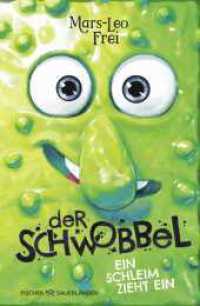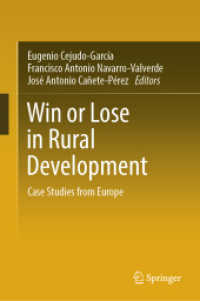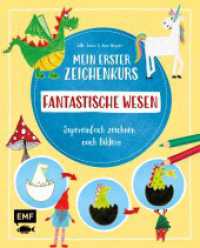- ホーム
- > 洋書
- > ドイツ書
- > Mathematics, Sciences & Technology
- > Earth Science
Full Description
This book offers a comprehensive review of life cycle assessment (LCA), circular economy (CE), and sustainable development, exploring their achievements and progress across the world.








